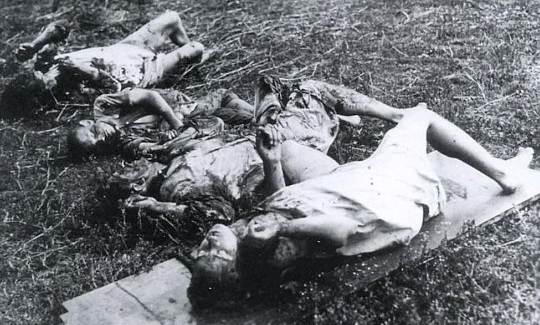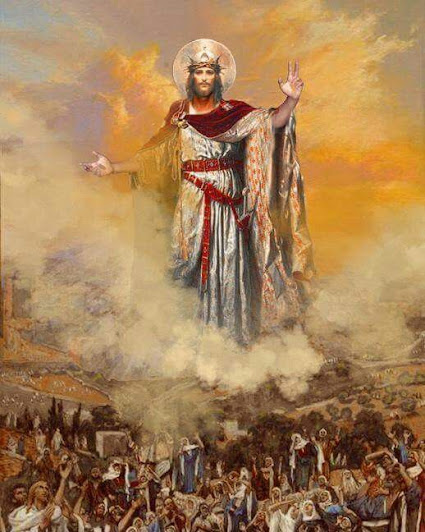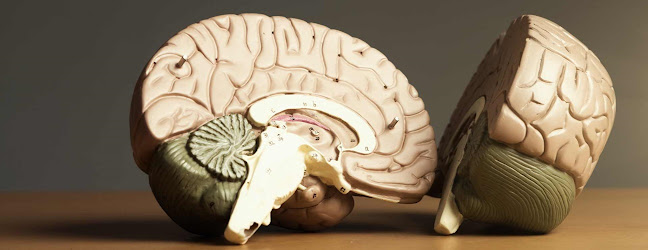OPEN LETTER in connection with the upcoming 80th anniversary of Bloody Sunday
OPEN LETTER
to the President of Ukraine Volodymyr Zelenskiy
Prime Minister of the Republic of Poland and the Council of Minister
Sejm and Senate of the Republic of Poland
The Verkhovna Rada of Ukraine
in connection with the upcoming 80th anniversary of Bloody Sudany
The 80th anniversary of Bloody Sunday is approaching. It is a symbolic date commemorating one of the many Ukrainian massacres committed against Poles. A slaughter that was unparalleled in bestiality during World War II, one that horrified even the German SS criminals themselves.
As heirs, families, friends and compatriots of the bestially murdered non-innocent civilian victims of the Ukrainian nationalists' hatred, we demand and expect:
1. the establishment of an interstate commission, independent of the state authorities of Poland and Ukraine, to investigate the crimes of genocide of Ukrainian nationalists against citizens of the Second Polish Republic in 1939-1947;
2. to bring about the compilation of a full, reliable census of the victims of the crime referred to in item 1;
3. in accordance with the ruling of the International Criminal Court in Nuremberg - to recognize by the Ukrainian authorities and by the current authorities of the Republic of Poland organizations such as:
1) OUN - UPA,
2) 14th Waffen SS Grenadier Division (1 Ukrainian),
3) other Ukrainian formations collaborating with the Third Reich, such as: the Ukrainian police, Nachtigall Roland battalions and the like,
- as criminal organizations;
4. to prosecute and bring to justice as war criminals those still alive who were responsible for the murders of civilians and those who took an active part in these crimes;
5. make public the names and photographs of the living and deceased criminals referred to in paragraph 4;
6. to organize and carry out at the expense of the Ukrainian state, with possible symbolic support from the Polish state:
1) reliable exhumations of all victims of this crime and with full respect for the dead,
2) dignified burials with the participation of the families of the victims and with the assistance of a priest of the rite indicated by the family,
3) the commemoration by the state and local authorities of Ukraine and Poland of the victims of the so-called Volhynian crime committed by Ukrainian nationalists against Poles, Armenians, Hungarians and citizens of other nationalities living in the then territory of the Second Polish Republic by placing permanently and in prominent places in the cities and villages where the above-mentioned crimes were committed commemorative plaques, monuments, etc., along with the placement of information about who was the perpetrator of these crimes;
4) creation in the center of Kyiv, Lviv, Volhynia, Ternopil, Lutsk, Rivne, Stanislaviv (now Ivano-Frankivsk), Uzhgorod of museums commemorating and fairly depicting the crimes of Ukrainian nationalists against citizens of the Second Polish Republic;
5) to honor - in place of the genocidaires - through monuments, street names, memorials, etc., those among the 30,000 Ruthenians who heroically resisted participation in the genocide and often brought aid to the threatened and murdered victims, for which they were bestially murdered by the criminals on an equal footing with Poles, Armenians, Jews, Hungarians, Slovaks and citizens of the Second Polish Republic of other nationalities;
7. we call for the suspension of any work and procedures and the complete liquidation of existing monuments, plaques and memorials, museums, names of streets, towns, schools and educational institutions, settlements, workplaces, etc. commemorating such persons and criminals as Andriy Sheptytskyi, Stepan Bandera, Roman Shuchevych, Dmytro Hycaj, Oleksandr Hasyn and others, or-organizations such as the OUN-UPA, the 14th Waffen SS Grenadier Division (1st Ukrainian) and their ilk;
8. we demand an immediate halt to the liquidation, removal, abolition of monuments, names of streets, towns, memorials of Polish national heroes, writers, poets;
9. At the same time, we call on:
1) The Bishops' Conference of Poland,
2) The Episcopal Conference of Ukraine,
3) The superiors of the Greek Catholic Church in Ukraine and Poland,
4) the superiors of the Orthodox Church in Ukraine and Poland:
- to develop and present to the faithful a common position on the crimes of Ukrainian nationalists against citizens of the Second Polish Republic,
- to account for and make a proper theological, moral and historical assessment - in the spirit of truth and love of neighbor - of the participation of Greek Catholic and Orthodox priests in the crimes of genocide committed by Ukrainian nationalists,
- condemn the participation of Greek Catholic and Orthodox clergy in the crimes committed by Ukrainian nationalists against the Polish population and other national minorities.
10. in addition, we demand:
1) apologize to the heirs, families and relatives of the victims of the crimes committed by Ukrainian nationalists against citizens of the Second Polish Republic,
2) to recognize the living victims of these crimes as war veterans, who would be entitled to full veterans' rights as defined by the laws of the Ukrainian and Polish states,
3) deprive former activists, functionaries, soldiers of the OUN - UPA, the 14th Waffen SS Grenadier Division (1 Ukrainian) and other Ukrainian formations collaborating with the Third Reich, such as the Ukrainian police, Nachtigall Ro-land battalions and the like - of veteran rights, state decorations and other honors and honors;
4) Establish July 11 as a Day of Remembrance for the Victims of the Genocide of Ukrainian Nationalists celebrated solemnly annually in Ukraine;
5) withdraw any draft resolutions, laws, other legal acts, etc., containing Ukraine's claims to the Polish State on account of the so-called "Operation Vistula" and other actions taken by the authorities of the People's Republic of Poland in relation to the Ukrainian and Lemko-Boyka population residing on the territory of the People's Republic of Poland, involving the resettlement of this population in order to protect the Polish population from attacks by Ukrainian nationalists;
6) pay the heirs and legal successors of the victims of Ukrainian crimes due financial compensation, including reparations and compensation for the loss of the victims' loved ones, as well as for destroyed and seized property;
7) introduce a statutory ban, effectively prosecuted and punished with all severity, on the use and application of any symbolism of criminal or-ganizations such as the OUN-UPA, the 14th Waffen SS Grenadier Division (1st Ukrainian) and their ilk.
Polish-Ukrainian relations have never been easy and are marked by numerous wounds. Over the course of several centuries of shared history, Poles living on the eastern borders of the former Polish-Lithuanian Commonwealth fell victim to many massacres perpetrated by Ukrainians, Ruthenians and Tatars. These crimes, and in particular the so-called Volhynian Massacre, have not only not lived to this day to be accounted for, but, above all, most of the innocently murdered victims still lie in unconsecrated ground, and do not even have nameless graves. They have been deprived of a dignified burial, which is prescribed by human conscience and by the binding provisions of inter-national law and the state laws of both Poland and Ukraine, and above all by Christian mercy, which dictates that the dead should be buried with respect for them.
The war between Ukraine and Russia, which has been going on for more than a year, cannot be a pretext for even a temporary dispensation from talking about the crimes of Ukrainian nationalists against the civilian population, against citizens of the Second Polish Republic. Neither can it be a reason for the Polish authorities and the so-called mainstream media and other "centers" and "opinion makers" to silence Poles and demand that we remain silent about these crimes. Mixing these two things, i.e. the ongoing Ukrainian-Russian hostilities, with ordering silence about the crimes committed by Ukrainian criminals is unacceptable and certainly does not serve both sides.
It is high time to face the truth in all
seriousness and responsibility, recognizing that 1939-1947 is an exceptionally
infamous period in the history of Ukraine, which requires an honest accounting.
It is difficult to talk about Polish-Ukrainian reconciliation when, to date,
the victims of these crimes have not been buried with dignity and are still
resting in buried wells, roadside ditches, and garbage dumps. How much pride
and hypocrisy one must have in oneself to, on the one hand, erect monuments to
Stepan Bandera, Roman Shu-chevych and other criminals, commemorate them by
naming schools, streets, plazas, institutions after them, and, on the other
hand, reach out for help to Poles, many of whom still do not know the resting place
of their loved ones murdered in a bestial manner?
Aware of their national history and identity, as well as their cultural and religious identity, Poles will never agree to have our mouths shut. We will not be silent! We remember and will not forget because it is impossible to forget such wrongs, even if you have forgiven them.
Poland is the country that, as of February 24, 2022, has admitted the largest number of Ukrainian citizens, and without any conditions. At the same time, financial assistance has been provided to most of the newcomers. From public money, that is, from what has been and will be earned by Poles, the care and education of Ukrainian children and young people in nurseries, kindergartens, primary schools, secondary schools and higher education is financed. In addition, Ukrainians in Poland have been granted a number of rights to social benefits, free health care, retirement and disability benefits, as well as under the legislation on the disabled, or financial assistance for families. At the same time, Poles see how unfairly, unreflectively and wastefully public money is spent for people whose financial situation is much better than that of very many Polish citizens. Those citizens who, as a result of ill-considered decisions of the authorities, have been burdened with additional burdens in the form of the debt of our state, and therefore us - Polish taxpayers.
It is impossible to build Polish-Ukrainian reconciliation on differentiating Poles as second-class people, while privileging the population who have neither Polish citizenship nor any ties to our country, many of whom are people who show resentment, hatred, contempt and entitlement to us Poles in our homeland.
How can there be talk of friendship when the situation of Poles in Ukraine is asymmetric to that of Ukrainians in Poland - to the detriment of Poles in Ukraine and Poland? Can there be talk of sincere friendship when the Ukrainian authorities still forbid the exhumation of the victims of the crimes of Ukrainian nationalists, when so far no one from the representatives of the Ukrainian state has apologized to us, our families for the hecatomb of 1939 - 1947? Can there be talk of Polish-Ukrainian friendship when in Ukrainian schools - as part of compulsory reading - children read Taras Shevchenko's poem "Haidamacy", in which the author praises the crimes against Poles and Jews:
They all lay down, all in a row:
Not a living soul
Of Israel and nobility.
Meanwhile, from the storm
Doubled, to the Cloud
The fires are reaching.
And Jarema keeps roaring:
"Punishment to the Lachs, punishment!"
Like a madman, he hangs, he burns,
He chops the dead body:
Give a Lach, give a Jew!
I have enough of them, not enough!
Give a Lach, give blood, give blood,
Meat with blood and foam!
Sea of blood... not enough sea....
Oksana! Oksana!
We do not agree with the lies, the attempts to shift responsibility for the crimes from the murderers to the innocent murdered victims, who do not even have a way to defend themselves against these lies.
We demand the restoration of symmetry in Polish-Ukrainian relations, where truth and respect will be the basis for shaping our further relations. It can only take place when:
- the crime will be called a crime, and the criminals will be called criminals,
- there will be an honest reckoning with the past, while the victims and their loved ones will be apologized to,
- the helpless, innocent victims will be exhumed and buried with due respect,
- the heirs of the victims will be compensated for the looted property, while the surviving victims of the Ukrainian nationalists will be granted veteran rights in both Poland and Ukraine,
- the symbolism of Nazi, Nazi, OUN - UPA and SS Galizien and other organizations will be banned by law in Ukraine, and those associated with and at the head of them will be recognized as criminals - in accordance with the Nuremberg Tribunal ruling,
- from schools, state, local government and other institutions, as well as from textbooks, books, publications and from the media space, "heroes" such as Bandera and Shuchevych will disappear,
- Poles in Ukraine will have the same rights as Ukrainians in Poland.
Building one's national consciousness cannot be based on a philosophy and ideology of hatred and contempt for another person, for a nation, and the currently ongoing hostilities in Ukraine cannot be an extenuating circumstance.
If Germany were attacked today by some other country, could the restitution of National Socialism, the erection of monuments to Adolf Hitler and other thugs also be explained by the war situation and the struggle of the Germans against the aggressor, as is the case with the commemoration of criminals in Ukraine?
We demand a firm stance of the Polish authorities. We demand a dignified commemoration of the 80th anniversary of the crimes of Ukrainian nationalists against citizens of the Second Polish Republic. We demand their exhumation and dignified burial.
The letter was signed by:
Marek Skowronski
Marek Prince Sapieha
Dr. Lucyna Kulinska
political scientist and historian
Rev. Marek Bąk
Krzysztof Baliński – diplomat
Jacek Międlar
Marcin Dybowski - Election Control Movement
Warsaw, July 7, 2023




.png)



Komentarze
Prześlij komentarz